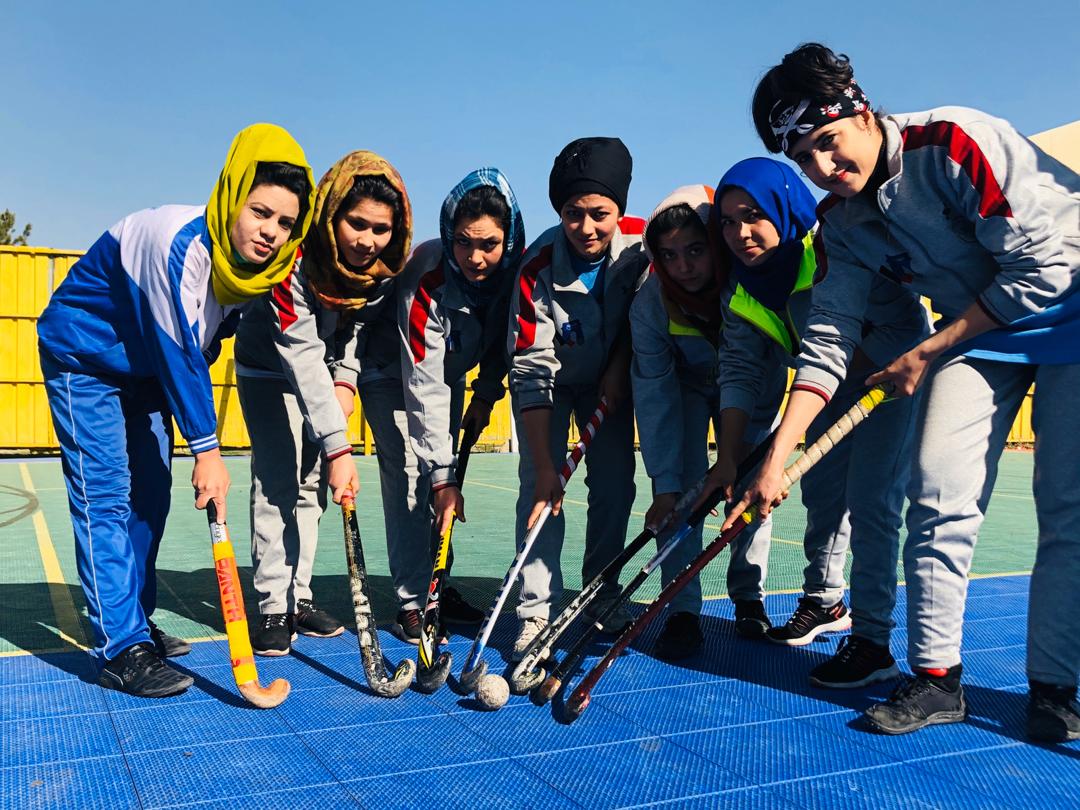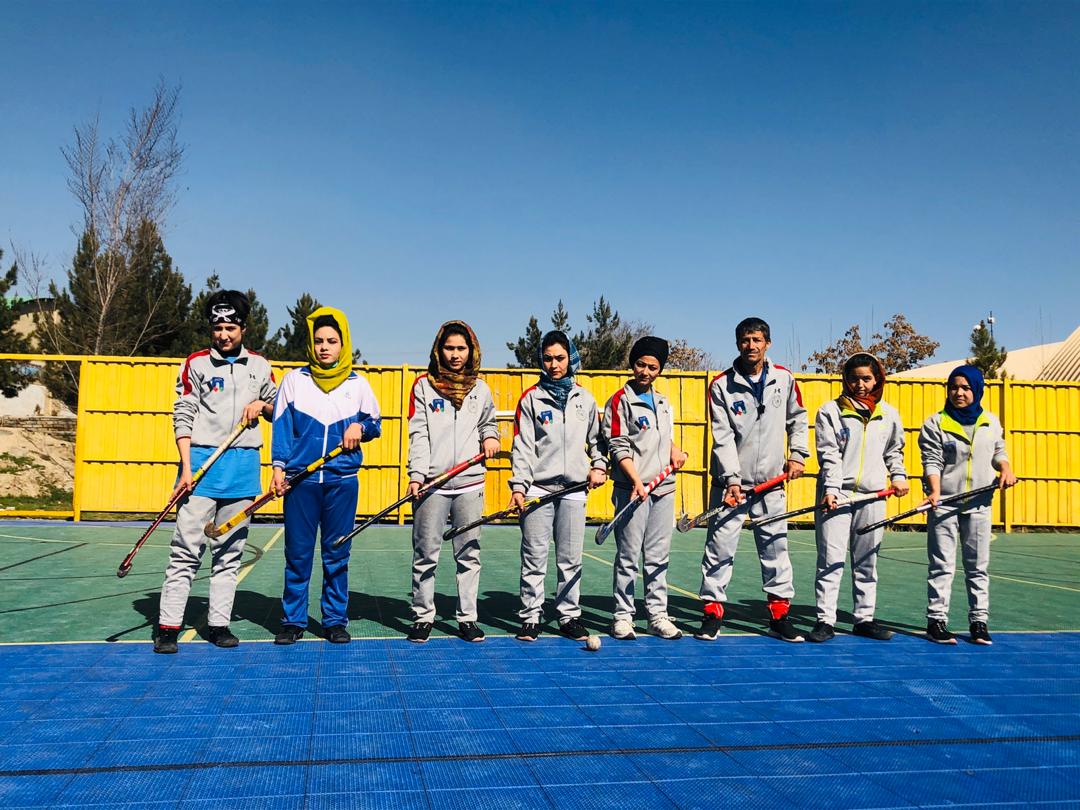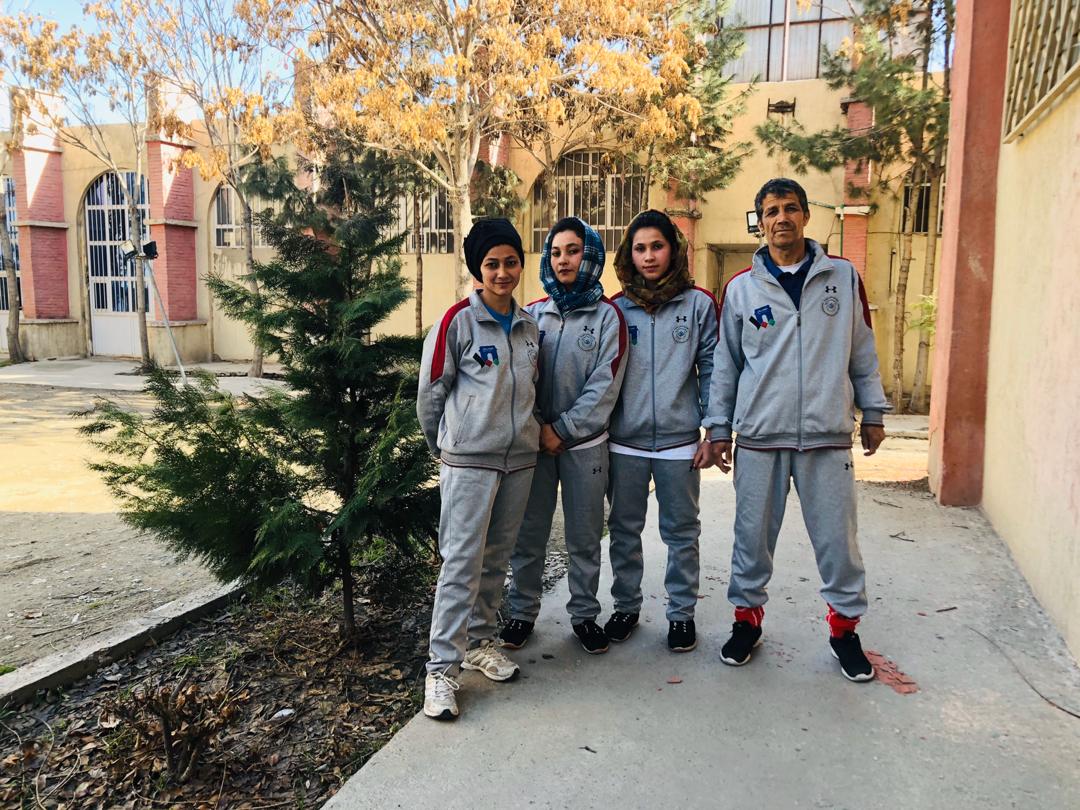Where Sport Really is Matter of Life and Death
Story by Sarah Juggins

New ParagraphJust this month, the Afghan national women’s hockey team called for more support for their sport from the government. The national team is asking the government to help fund a pitch where the women can train and play. Since it was formed in 2012, the women’s national team has not had a pitch to call home, meaning they cannot host other teams or have regular training.
“We couldn’t pursue our regular training because there is no area to train and to demonstrate our ability on the world stage,” says Khadija Achakzai. “Fortunately, we were assured recently about a hockey rink [pitch] that is currently under construction. We hope that the completion of this rink will help us to pursue our sport.”
In a secondary plea to the government, the hockey team also asked that the government recognise the team and, in the future, to allow the women’s team to compete under the Afghan flag.
Despite the many barriers to women and girls playing sport in Afghanistan, hockey has continued to attract participants. There are 28 members of the Afghan Women’s Hockey Federation, with branches of the federation running teams in three provinces.
Rukhsar Habibzai, deputy head of the Afghan Hockey Federation, speaking to the national news channel Tolo News, says: “There has been significant progress in the National Hockey Federation of Afghanistan over the past few years. For the first time, we managed to organise a course with the support of the International Olympic Committee and the National Hockey Federation, and four of our female players managed to get their certificates. We also managed to establish our provincial hockey teams.”
In an interview with the International Hockey Federation, Khadija says: “I started hockey very young, and at first the training was very hard, but I soon got used to it and started enjoying it. I am still playing but the current situation in our country is very tough for women.
“Women cannot do sports or even go to school or university, but even within these limitations we struggle to achieve our aims. I urge all women not to give up. You can do sports and you have the right to learn.
“You must do everything in your power to achieve your dreams and don’t let anyone stop you from doing so. We get a lot of support from our Federation, which is really commendable.”
The Afghan Hockey Federation is also supported by the Asian Hockey Federation. Over the past few years, the Asian Hockey Federation has worked closely with the national federation to support hockey development for women and girls.
Among the programmes being run by the continental federation are Youth Development Programmes, which aims to introduce hockey to school children across Afghanistan. There is a long way to go, but Khadira and her team mates are leading the way as they continue to push for the right to play their sport in a safe and supportive environment.

© 2022 PlanetHockey • Website Design Auckland by Fuel
Get in Touch
PO Box 37 978
Parnell
Auckland, 1001
New Zealand
P: +64 21 757 747



